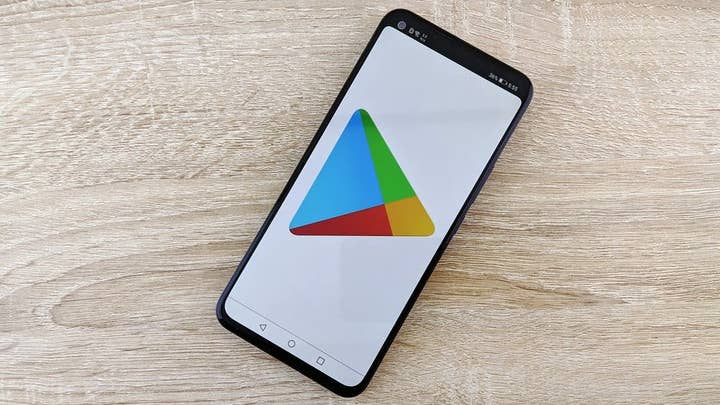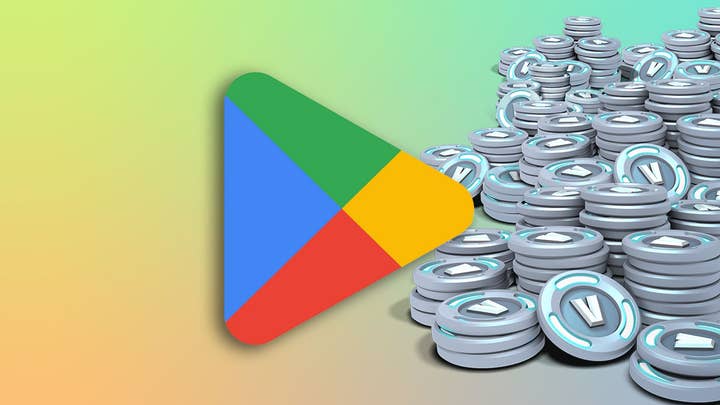Epic's win over Google "spells trouble for app stores"
But lawyers warn this victory is "not a silver bullet" in the fight against Apple, and that full repercussions are years away
Sign up for the GI Daily here to get the biggest news straight to your inbox
This week's verdict in the antitrust trial between Epic and Google is not just a significant step forward for the former's legal crusade against app stores, but potentially a landmark moment in the evolution of the mobile market.
The jury voted unanimously that Epic won on every count, deeming the dominance of Google Play and the requirement for developers to use its billing system – entitling Google to 30% of all transactions – to be monopolistic and anti-competitive.
It's a decision that could have repercussions for the entire mobile industry and a more decisive victory than Epic's 2021 court battle against Apple, where the judge ruled in favour of the Fortnite firm on just one of ten counts.
GamesIndustry.biz spoke to lawyers and analysts about the implications of this verdict, with Richard Hoeg, managing partner of The Hoeg Law Firm, telling us that challenging Google was always going to be easier for Epic because the company does not control the hardware ecosystem for Android.
He also believes it's quite telling how quickly the verdict was given: "This was a long trial, and a speedy verdict suggests there was not much conflict in the jury room on some key points such as market definitions and the like. I also think that the split of the Apple and Google cases may result in exactly the opposite of what 'open' ecosystem proponents would like.
"Google has effectively been penalised for its semi-open approach while Apple's walled garden is, so far, permitted. That may cause Google and other businesses to consider walled gardens a superior legal compliance solution."
"If upheld, the decision will pave the way for increased competition and innovation, reshaping the digital landscape for both developers and consumers"
David B. Hoppe, Gamma Law
David B. Hoppe, managing partner of Gamma Law, adds that when combined with the 2021 judgement against Apple, which ordered the iPhone firm to cease its anti-steering practices, this week's verdict "seems to signal the beginning of the end for app store monopolies."
"If upheld, the decision will pave the way for increased competition and innovation, reshaping the digital landscape for both developers and consumers," he says.
Yoshio Osaki, president and CEO of market research and strategic consulting firm IDG Consulting, believes this verdict is the correct one, saying that Google does have "monopolistic app storefront power" on Android (excluding China) and that the 30% fee "was an arbitrary take rate that should be revisited based on deteriorating margins for game developers in the mobile landscape."
However, the disparity between the jury's verdict here and the judge's ruling in 2021 makes the issue more complex.
"I am not a lawyer, but two similar cases, with both defendants sharing similar monopolistic power dynamics in their respective app store ecosystems, leading to two diametrically opposed outcomes and therefore two different legal remedies coming out of these cases, seems unsustainable and intellectually inconsistent."
It's worth emphasising at this stage that nothing is due to change in the short-term. Google has announced it will appeal against the verdict, and this can be a lengthy process – as evidenced by the fact the Epic vs Apple ruling is still being debated in the Supreme Court.
However, this week's decision has sparked discussions as to whether Epic's victory over Google will improve its chances against Apple.
Hoeg notes that the two cases do not directly affect each other, but adds: "It is certainly notable that Epic has a jury win here and most courts will either want to account for it or distinguish its usefulness to whatever case they may be presented with."
Hoppe agrees, adding: "The Epic v. Google verdict shakes things up, offering indirect ammo for Epic's battle against Apple. It's a morale boost, sharpening Epic's legal edge and potentially swaying public and regulatory views on app store monopolies.
"However, it's not a direct legal silver bullet for Epic's Apple fight."
"It looks like the 30% toll may soon be history"
David B. Hoppe, Gamma Law
Peel Hunt's technology research analyst Oliver Tipping believes the verdict will give "additional weight" to Epic's arguments against Apple.
"After all, Apple and Google often point at one another as their biggest rivals and a clear example of competition in the sector. How can one be a market manipulating monopoly and the other not?" he says.
Osaki goes further to suggest Epic triumphing over both platform holders could see a shift in which platform is most beneficial to game developers.
"If the current verdicts hold in each case, for Apple and Google, respectively, then the economics on Google Play will immediately become more favourable to developers than on Apple, and this could actually lead to more mobile developer investment in boosting Google Play traction since the margins could eventually be stronger versus those on Apple."
A central pillar of Epic's fight against both Google and Apple is the 30% cut the two companies take from all transactions.
This fee, which is common across most digital platforms, has been the subject of much debate in recent years, and while Hoppe acknowledges that the judge has yet to decide the appropriate remedies in Epic vs Google, he adds that it "looks like the 30% toll may soon be history."
"[This will be] likely as a result of reductions by app stores and new purchasing options for consumers," he explains. "Developers may have new challenges with discoverability, however, and security."

Tipping adds: "This fee is a material issue even for firms as big as Apple and Google, with both generating tens of billions of dollars from these transaction fees. One alternative here could be the reduction in this rate, though both stores are known to offer more favourable rates to bigger developers, including Epic, who were clearly still unsatisfied with the suggested concessions.
"This does spell trouble for the app stores. While we do not know what the resolution to the problem will look like, the implications are hugely material for both Apple and Google, that generate billions of dollars from this 30% commission revenue stream."
Osaki tells us that IDG has predicted for years that the 30% standard would be removed as more third-party stores introduce different revenue shares, and this verdict accelerates that trend.
"Developers can now find a bit more margin cushion by monetising through third-party app store alternatives, some of which they might start on their own, while others will be started by PC and console-based platform holders that could use their existing ecommerce infrastructures and move them onto mobile," he says.
"Since user acquisition costs on mobile have skyrocketed in the past four years, and IDFA has made that problem worse, a downward shift in the 30% charge could enable mobile developers to once again spend a bit more on UA and grow their playerbases more effectively."

Beyond the direct implications for the 30% charge, the wider implication is on the app store landscape. At present, Apple's App Store is the only marketplace on iOS, and while Android is open to third-party stores, Google Play is dominant in the vast majority of countries.
Hoppe believes Apple and Google will "continue to wield significant market power," but expects consumers will soon embrace new purchasing options. The challenge for third-party app stores will be building up user trust, creating an infrastructure and support system that can rival that of Google, and finding a way to boost app discoverability.
Tipping raises the security issues that may prevent new entrants from creating a sizeable app marketplace: "The number of scam games, or games that simultaneously download malware onto your mobile alongside a game could potentially scale massively.

"Obviously, Epic is big enough and established enough to have its own policies in place to stop this. However, users looking for a bargain may be attracted to less legitimate sources in search of a bargain, something they are currently protected from."
Ultimately, even if courts rule that Google and Apple change in order to allow more competition on their platforms, both the App Store and Google Play will still present the strongest offering to developers for the time being, thanks to their sizeable and engaged audiences that are already accustomed to using these stores.
Osaki notes that, theoretically, companies with significant IP (such as Epic with Fortnite) could "start to chip away" at Google Play's market share, but this sort of erosion would be "evolutionary rather than revolutionary."
"We would need to see a much bigger and more powerful distribution platform holder, who could fulsomely and aggressively enter mobile, to really even the playing field. Likely candidates in that business case would be Valve/Steam, Xbox (maybe even bundled with Battle.net through the recent Activision acquisition), PlayStation, or Epic Games Store.
"We might also see PC browser-based storefronts that could move over to mobile, although browser-based gameplay on mobile remains very nascent (ironically Google is an innovator here) because of the sticky user behaviour and loyalty to app-based interfaces."
"Users looking for a bargain may be attracted to less legitimate sources in search of a bargain, something they are currently protected from"
Oliver Tipping, Peel Hunt
He concludes by describing this verdict as a "watershed moment in our industry's history" as, regardless of the outcome, such a decisive victory against Google will be looked back upon as a turning point in the ongoing debate around mobile monopolies.
"This verdict might also eventually have some potential bearing on non-mobile storefront platform charges," Osaki adds, "although that is more of a derivative outcome that may or may not come to fruition in the next few years."
Sign up for the GI Daily here to get the biggest news straight to your inbox

